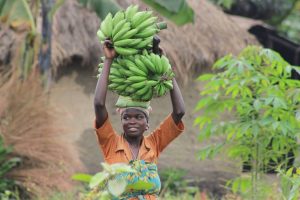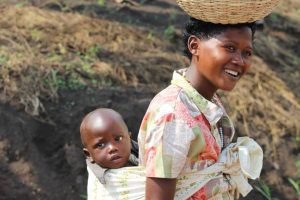 Women are the engines of Africa! But these engines have no economic or political power. Even though over 80% of women in Sub-Saharan Africa work in the agricultural industry, they hardly ever own the land. According to the report by the Codespa Foundation “African Women, Looking to the Future” (October 2017), this means that they have no control over the land and cannot make decisions on harvesting.
Women are the engines of Africa! But these engines have no economic or political power. Even though over 80% of women in Sub-Saharan Africa work in the agricultural industry, they hardly ever own the land. According to the report by the Codespa Foundation “African Women, Looking to the Future” (October 2017), this means that they have no control over the land and cannot make decisions on harvesting.
Click here for the full report:
http://www.codespa.org/contenido/derechos-de-la-mujer/
 Most of them work in subsistence farming as a way of feeding their families, which means that they cultivate specifically for domestic use and do not generate income from their crops. Quite often they are incapable of meeting the need for cash that they and their families have which could include medical bills, house cleaning products and school fees.
Most of them work in subsistence farming as a way of feeding their families, which means that they cultivate specifically for domestic use and do not generate income from their crops. Quite often they are incapable of meeting the need for cash that they and their families have which could include medical bills, house cleaning products and school fees.
Even so, they are still the ones who are responsible for taking care of their children, for cleaning the house, cooking and feeding their entire family with the income they earn from the land.
On average, women in Kasenda and Kimya have 6 to 8 children each. They often share a husband and might live alone with their children or accompanied by their husbands every once in a while. Domestic violence is not only common but is also highly tolerated. Husbands are the ones who work in activities that generate income, which may or may not be reinvested in their own families.
Promoting women’s equality not only means more dignity, independence and equality, but also the fundamental right to choose and decide for oneself.
Empowering women means that they will be able to earn an income, have better wellbeing, be less vulnerable, have better food safety and use basic natural resources in a more sustainable way.
Empowering women is one of the 17 Objectives for Sustainable Development that is approved by the United Nations for the transformation of our world in 2030. Click here for the full report:

